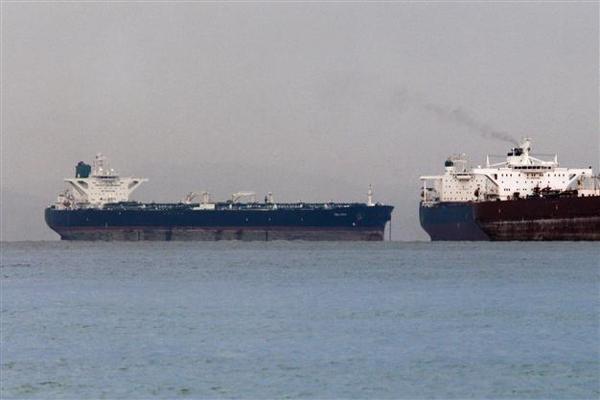Iran halts 'cyber attack' on its oil servers
TEHRAN - Agence France-Presse


Vessels sail past the Malta-flagged Iranian crude oil supertanker Delvar (L) anchoring off Singapore, in this March 1, 2012 file photo. REUTERS Photo
Iran said on today it had halted the spread of a data-deleting virus targeting computer servers in its oil sector, and hoped to have all systems back and running within days.Hamdolah Mohammadnejad, a deputy oil minister heading up a crisis committee to counter what officials described as a "cyber attack," told the official IRNA news agency that the virus's impact had been limited by rapid action.
"We shut computers connected to these servers temporarily and fortunately we were able to stop its spread. Thus no information or data were harmed," he said.
"We are investigating the causes of these cyber problems and in the next two to three days we hope the problems will be solved," he added.
Reports on Monday said Iran had disconnected several of its computers from the Internet to curb the virus, including ones running its main oil export terminal on Kharg Island in the Gulf. Mohammadnejad stressed to IRNA that Iran's oil facilities were continuing to operate despite the digital assault, and that back-ups existed of any data that could have been affected.
He said the malware had attacked "a number of National Iranian Oil Company servers ... but cyber security experts quickly restrained it." The websites of the Iranian oil ministry (www.mop.ir) and the National Iranian Oil Co (www.nioc.ir) were back on-line on Tuesday, after being inaccessible for many hours after the virus first struck on Sunday.
An oil ministry spokesman, Alireza Nikzad, on Monday admitted that "to say that no data was harmed is not right." But he said only data related to "some" users had been compromised.
Iranian officials and media made no accusations so far over who might have been behind the attack.
But the response to the emergency could be traced back to procedures put in place after a sophisticated 2010 attack on computers linked to Iran's nuclear programme through a worm called Stuxnet.
Western media and experts said Stuxnet's goal -- targeting uranium enrichment centrifuges as Iran's Natanz nuclear facility -- and its self-destruct lines of code strongly suggested the United States wrote it, with or without Israeli help.
Washington and Tel Aviv are the loudest critics of Iran's nuclear programme, which they see as masking a bid to develop the capability to make atomic weapons.
Iran, which denies its nuclear programme is anything but peaceful, has come under intense Western pressure in recent months in the form of economic sanctions aimed at curbing its all-important oil exports.
The Islamic republic is OPEC's second-biggest exporter, after Saudi Arabia.
The issues of Tehran's nuclear activities and Western sanctions are being raised in talks between Iran and world powers that were revived in Istanbul this month and are due to continue in Baghdad on May 23.
